Are you wondering how to prep for your upcoming partners' meeting? Crafting a well-structured agenda can make all the difference in ensuring a productive and engaging discussion. By outlining key topics and assigning time slots, everyone will be clear on what to expect, facilitating smoother conversations and decision-making. Ready to dive into our comprehensive guide on effective agenda preparation?

Meeting Objectives
Meeting objectives for partners' gathering include enhancing collaborative strategies, identifying key performance indicators (KPIs) for joint projects, and establishing a timeline for future initiatives. This meeting aims to assess current partnership dynamics, maximize resource allocation, and foster open communication among stakeholders. Additional objectives may involve brainstorming innovative solutions for shared challenges, reviewing financial contributions, and discussing potential areas for expansion or diversification within the partnership network. Each objective is designed to create actionable outcomes, strengthening the overall partnership framework and aligning goals for mutual success.
Agenda Topics
Preparation for the partners' meeting requires a well-structured agenda to ensure effective discussion and decision-making. Key topics may include business performance metrics from the last quarter, strategic initiatives for market expansion, budget allocations for upcoming projects, and updates on key partnerships and collaborations. Each topic should be backed by relevant data, such as sales figures from Q3 2023 or projections for 2024, and highlighted by specific objectives to be achieved during the meeting. A dedicated section for open discussions will encourage input from all partners, fostering a collaborative atmosphere. Finally, scheduling the next meeting date will help maintain momentum and continuity in project execution.
Time Allotments
Effective meeting agendas are crucial for optimizing time during partners' meetings. Each topic should be allocated specific time segments to ensure all relevant discussions take place without exceeding the overall meeting duration, typically set at 60 to 90 minutes. Key agenda items might include project updates (15 minutes each for ongoing initiatives), financial reviews (20 minutes focusing on budget allocations), strategic planning discussions (30 minutes for future objectives), and open floor discussions (15 minutes for partner input). Always aim to include time for closing remarks (5 minutes), ensuring all partners leave with a clear understanding of next steps and action items. Properly formatted agendas with clearly defined time allotments can significantly enhance the efficiency and productivity of partner meetings.
Participant Roles
For an upcoming partners' meeting, it is essential to clearly define participant roles to ensure effective collaboration and communication. The facilitator, responsible for guiding discussions and managing time, sets the meeting's tone. The note-taker captures key points, decisions, and action items, ensuring accurate records are maintained for future reference. Subject matter experts (SMEs) present specific insights, contributing their specialized knowledge on relevant topics. Each partner representative, representing their organization, should be prepared to share updates and provide feedback. An observer may also be included to offer impartial insights and support the overall process. Assigning these roles enhances meeting productivity and fosters a structured approach to decision-making.
Action Items
During the partners' meeting, crucial action items need to be discussed to ensure alignment and strategic progress. Focus areas include reviewing quarterly financial performance metrics (Q3 2023) from various departments, addressing operational inefficiencies observed in the supply chain logistics for North America, and evaluating the upcoming marketing campaign scheduled for November 2023 targeting millennials in urban areas. Additionally, key stakeholders will deliberate on enhancing partnership synergies, especially regarding joint ventures with companies in the renewable energy sector--expected to grow by 20% by 2025. Assigning accountability for follow-ups on these items is essential to track progress effectively before the next meeting.
Letter Template For Partners' Meeting Agenda Preparation Samples
Letter template of collaborative agenda outline for partners' discussion
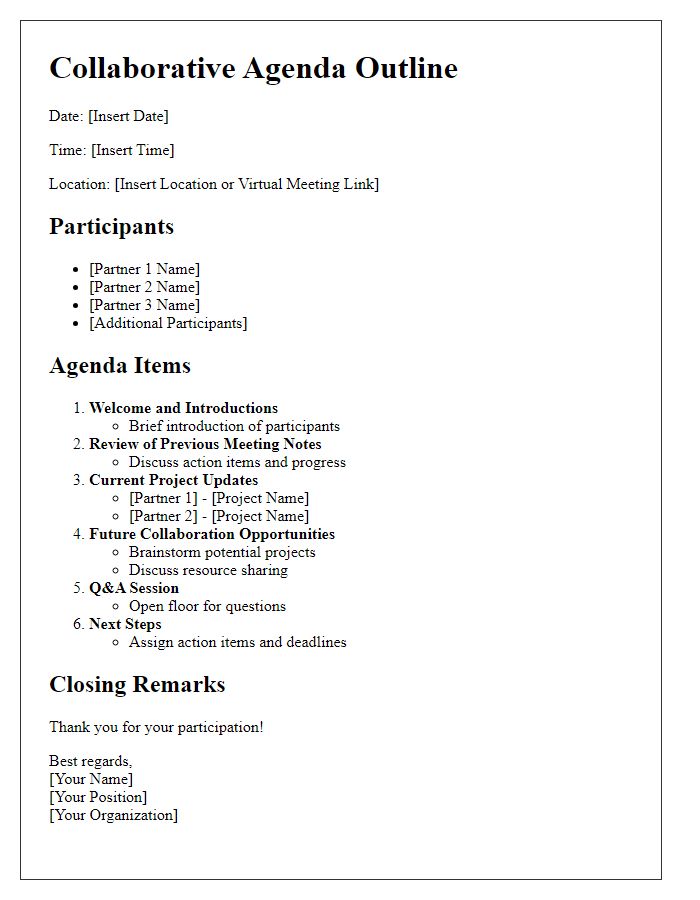

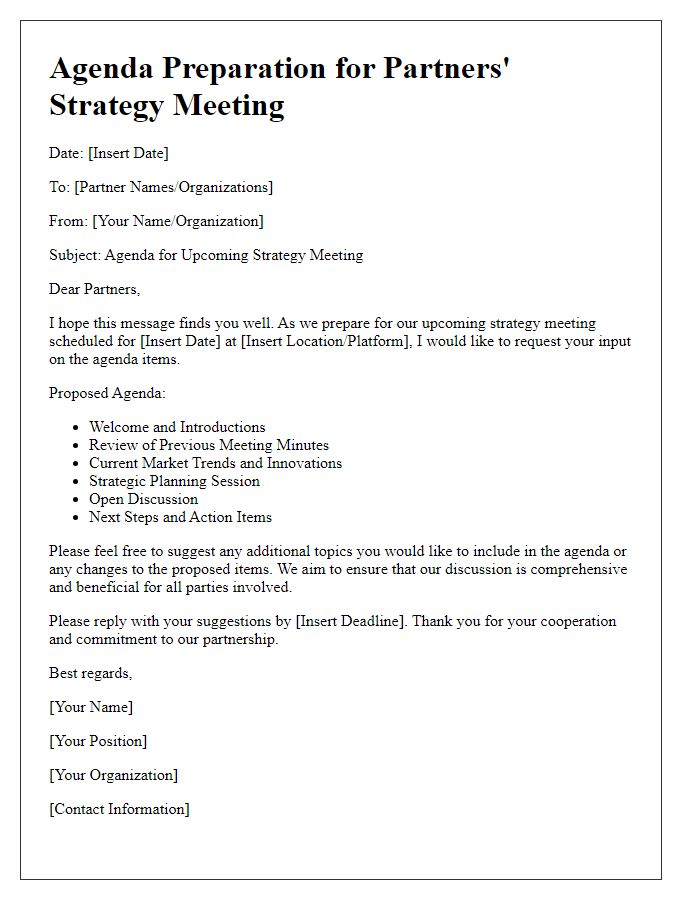
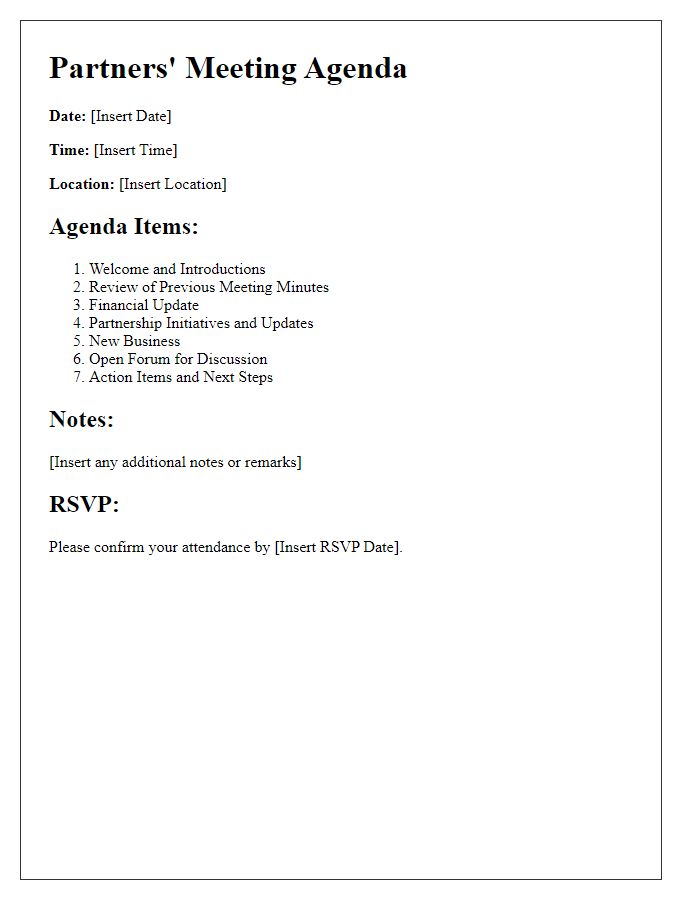
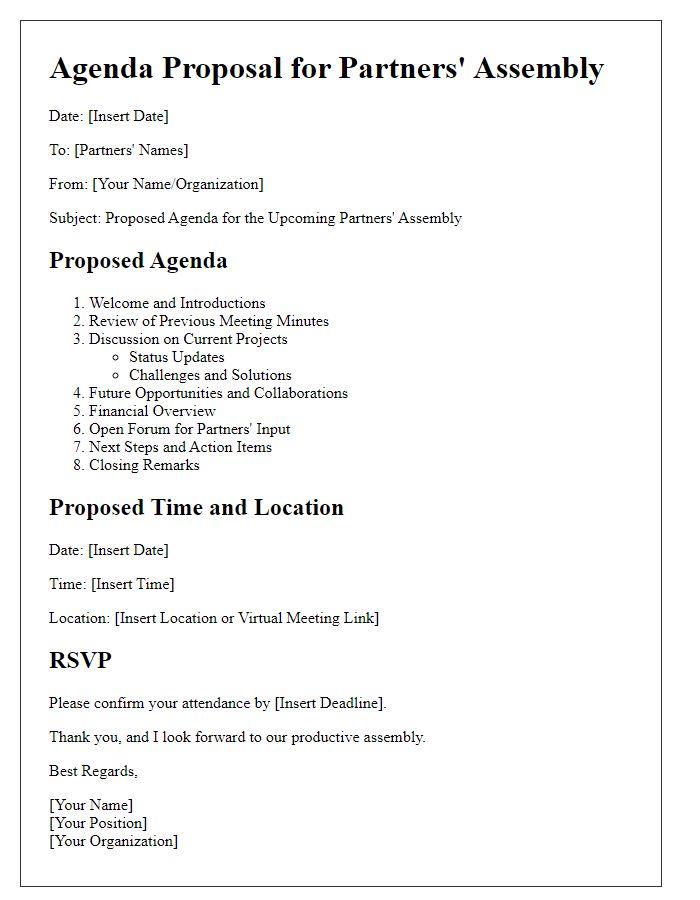
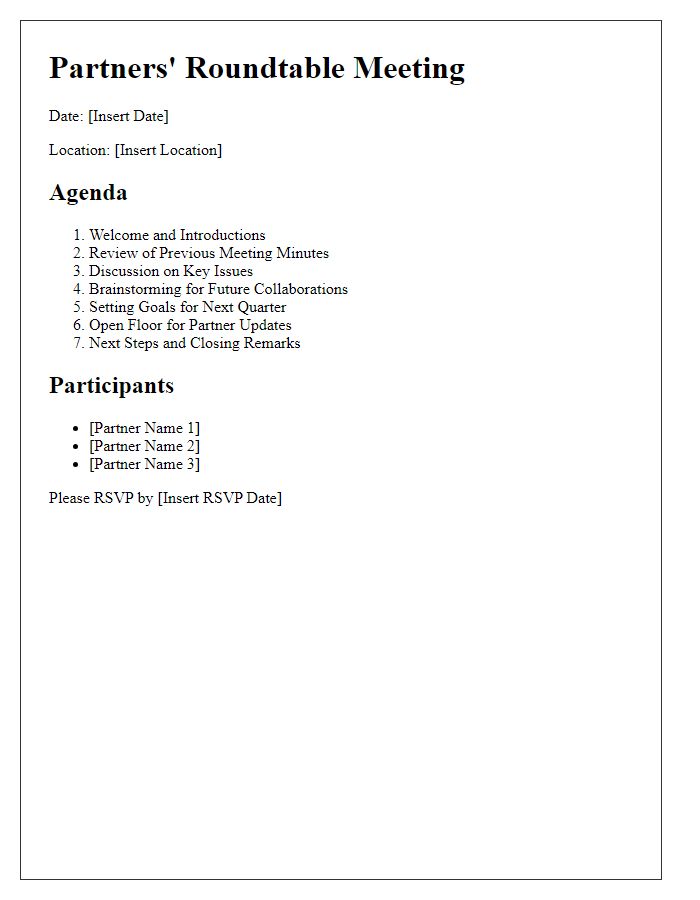
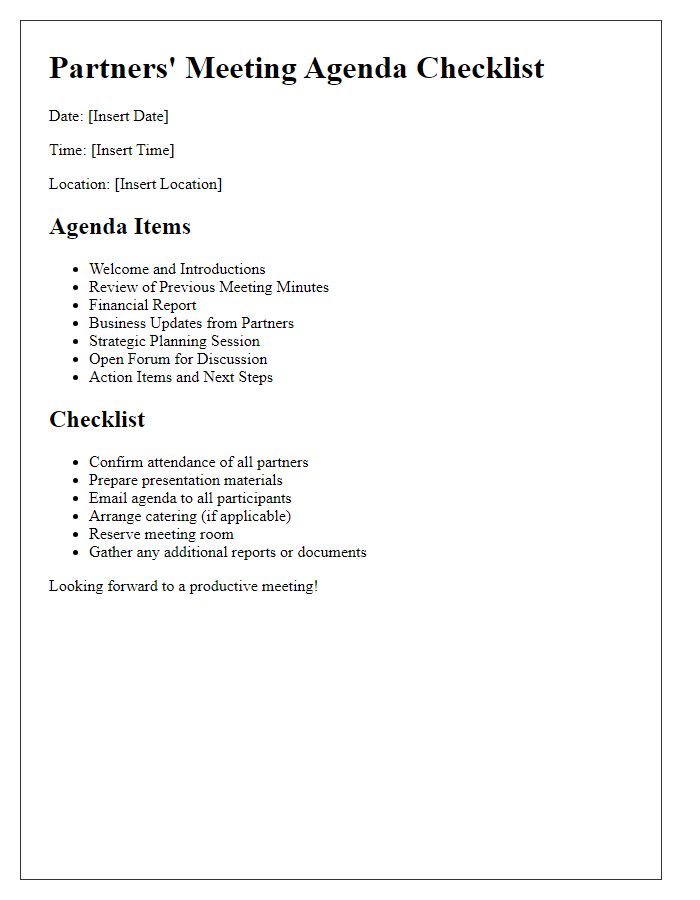
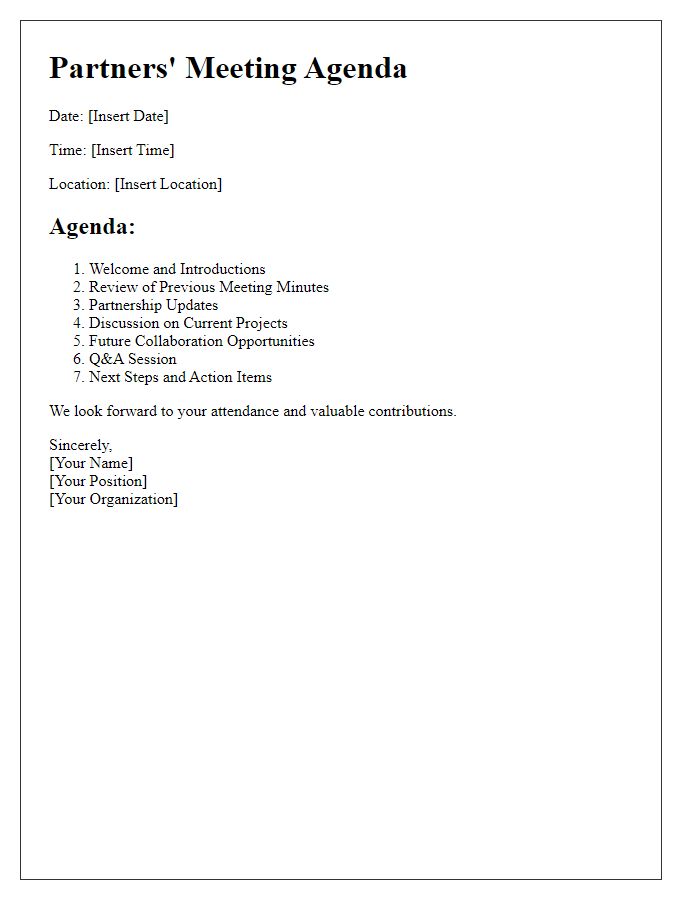
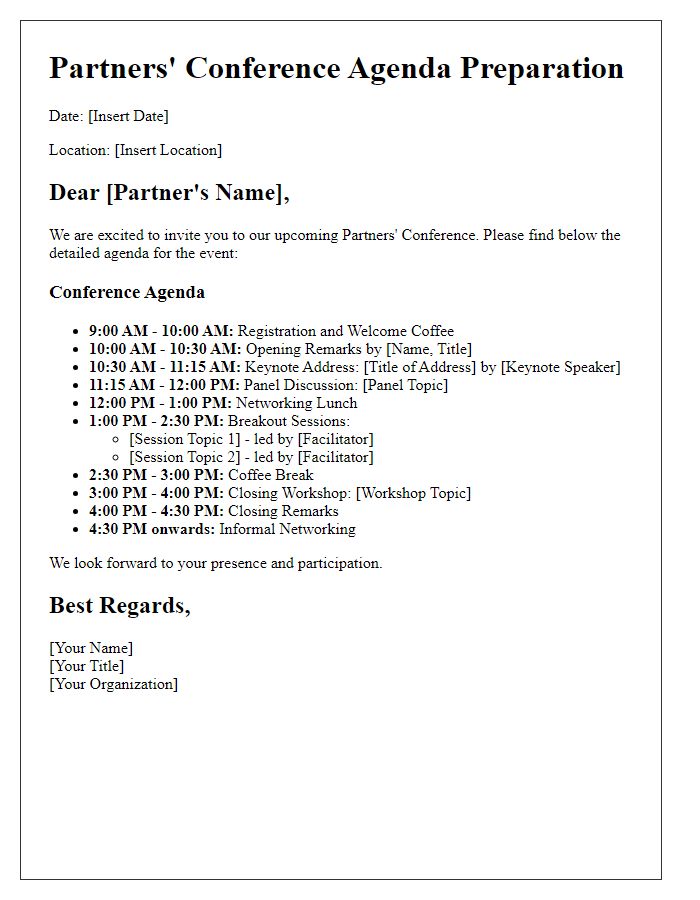
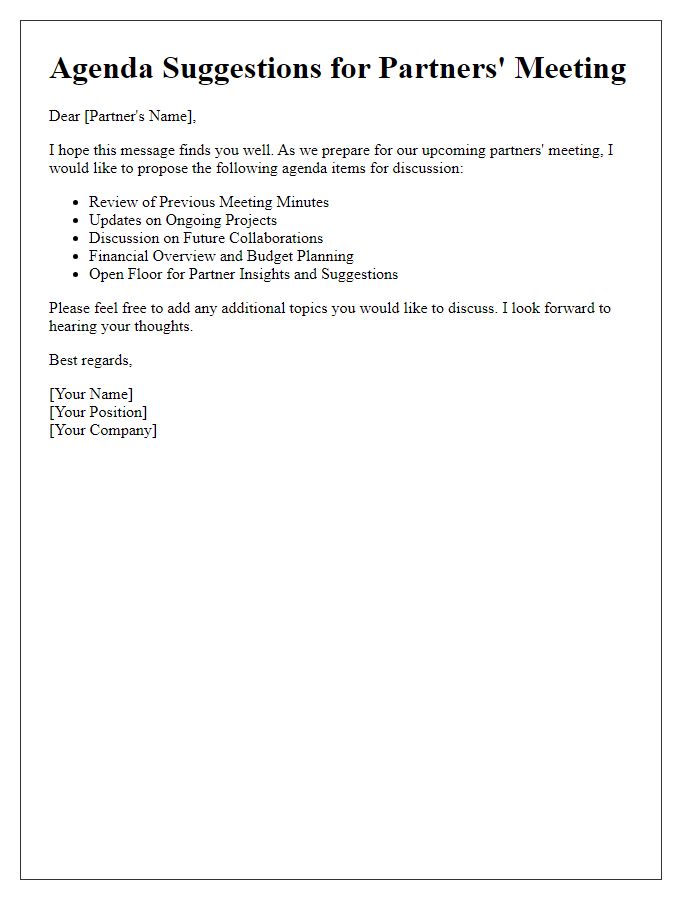
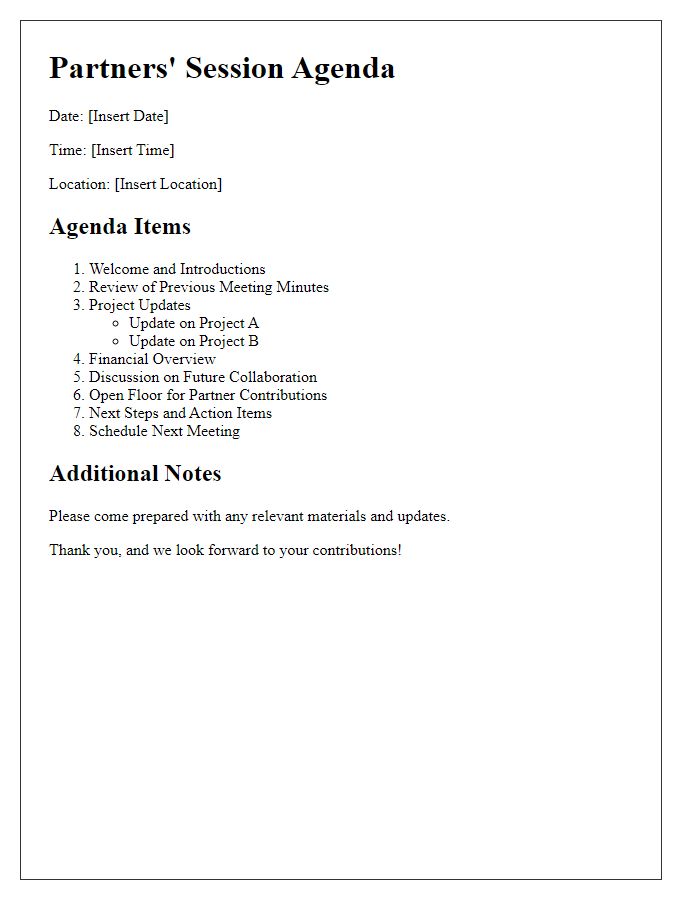


Comments